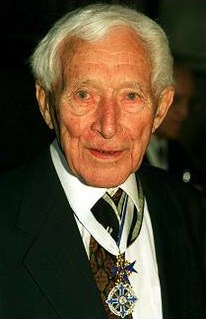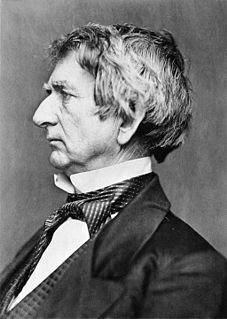A Quote by Marcus Tullius Cicero
If nature does not ratify law, then all the virtues may lose their sway.
Related Quotes
If you lose touch with nature you lose touch with humanity. If there's no relationship with nature then you become a killer; then you kill baby seals, whales, dolphins, and man either for gain, for "sport," for food, or for knowledge. Then nature is frightened of you, withdrawing its beauty. You may take long walks in the woods or camp in lovely places but you are a killer and so lose their friendship. You probably are not related to anything to your wife or your husband.
Since my logic aims to teach and instruct the understanding, not that it may with the slender tendrils of the mind snatch at and lay hold of abstract notions (as the common logic does), but that it may in very truth dissect nature, and discover the virtues and actions of bodies, with their laws as determined in matter; so that this science flows not merely from the nature of the mind, but also from the nature of things.
The courts are run on COMMERCIAL CONTRACT LAW and that is has NOTHING to do with any IN-LAW procedures whatsoever. So the nature of the game is to OBTAIN a CONTRACT with your OPPONENT (Adversary) so that the court can acknowledge and RATIFY the contract and SETTLE and CLOSE the case and move on and if you understand that EVERYTHING in there is happening by way of CONTRACTS instead of trying to get the truth out then MAYBE you'll get the truth to prevail by following the CORRECT procedure to get them to acknowledge the truth by CONTRACTUAL CONSENT.
A strict observance of the written laws is doubtless one of the highest virtues of a good citizen, but it is not the highest. The laws of necessity, of self-preservation, of saving our country when in danger, are of higher obligation. To lose our country by a scrupulous adherence to written law would be to lose the law itself, with life, liberty, property and all those who are enjoying them with us; thus absurdly sacrificing the end to the means.
A comprehensive doctrine, either religious or secular, aspires to cover all of life. I mean, if it's a religious doctrine, it talks about our relation to God and the universe; it has an ordering of all the virtues, not only political virtues but moral virtues as well, including the virtues of private life, and the rest. Now we may feel philosophically that it doesn't really cover everything, but it aims to cover everything, and a secular doctrine does also.
In Romans 7, St. Paul says, "The law is spiritual." What does that mean? If the law were physical, then it could be satisfied by works, but since it is spiritual, no one can satisfy it unless everything he does springs from the depths of the heart. But no one can give such a heart except the Spirit of God, who makes the person be like the law, so that he actually conceives a heartfelt longing for the law and henceforward does everything, not through fear or coercion, but from a free heart.
In the state of nature, wrong-doing is impossible; or, if anyone does wrong, it is to himself, not to another. For no one by the law of nature is bound to please another, unless he chooses, nor to hold anything to be good or evil, but what he himself, according to his own temperament, pronounces to be so; and, to speak generally, nothing is forbidden by the law of nature, except what is beyond everyone's power.










































